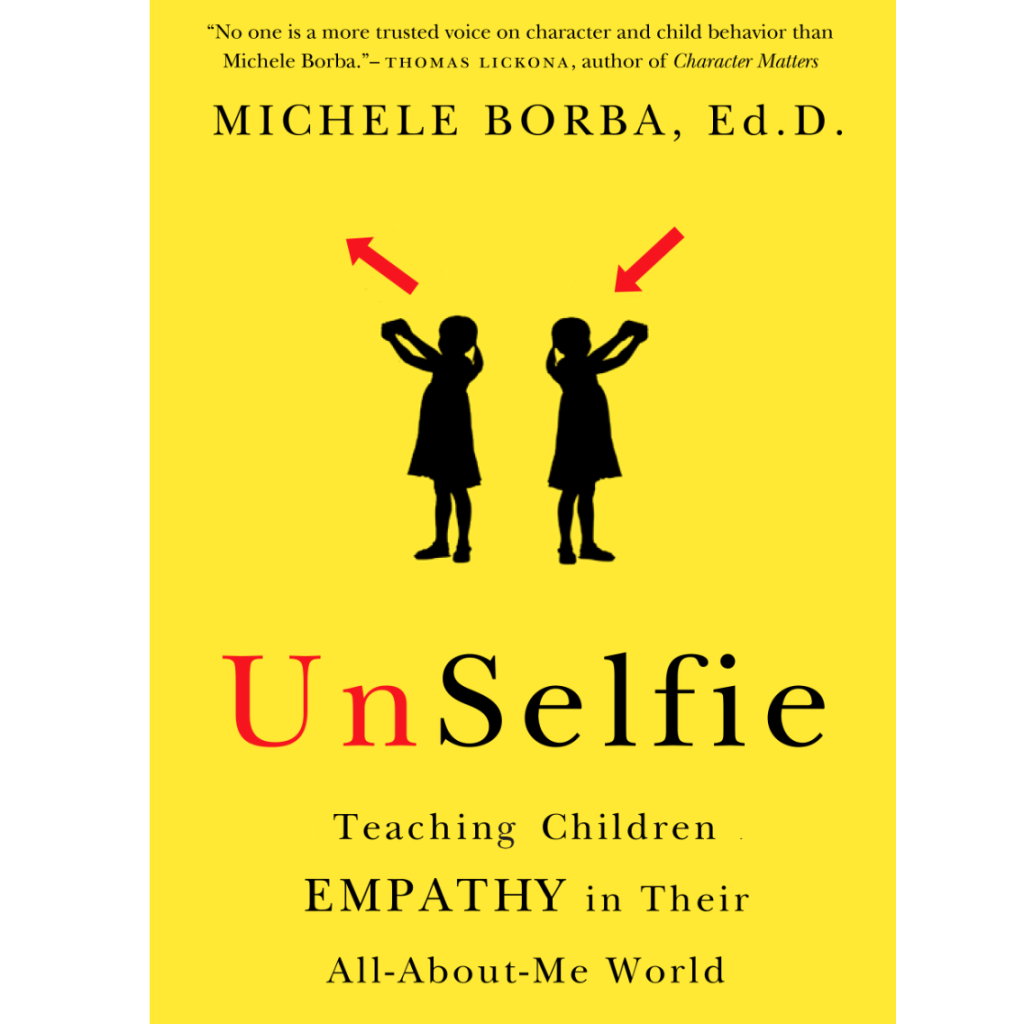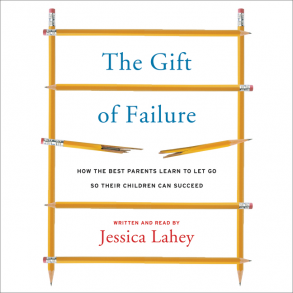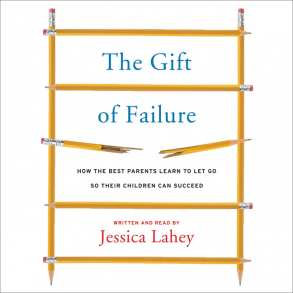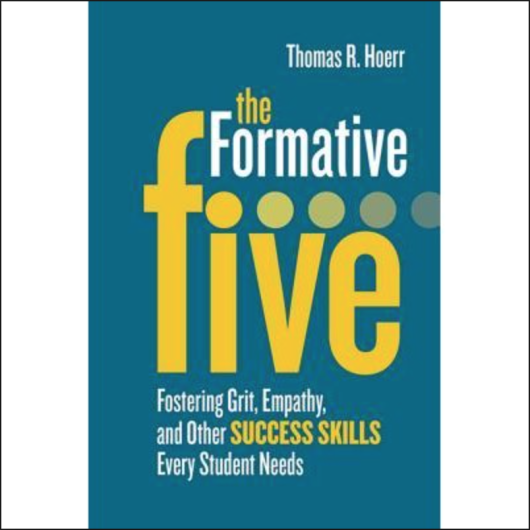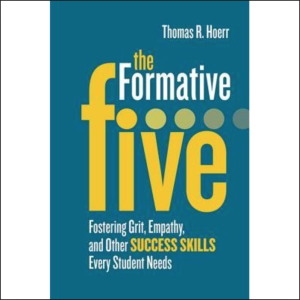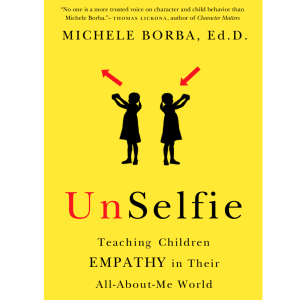
Emotional literacy, or the ability to read cues of others’ emotional states, has been associated with better school performance. Skilled perspective-taking is associated with greater popularity. Kids and teenagers’ heavy digital media use (on average almost eight hours a day) can undermine the development of emotional literacy. Borba suggests that parents model appropriate use of technology, and have times when kids don’t use technology. She suggests also expressing feelings, teaching children a large vocabulary of emotional words, reading books and news stories that make them think about others’ feelings and situations, befriending a diverse group of people, and practicing reading emotions and taking perspective by giving children the opportunity to care for others.
Borba argues also for the importance of developing strong moral identities and moral imaginative abilities. She shows that the majority of today’s teenagers value their personal happiness over their being a good person, and parents contribute to teenagers’ under-valuing moral goodness by rarely praising character, even as they over-praise other accomplishments. Borba suggests parents teach children to value being the type of person who cares about others by explicating the family’s core values, modeling altruism, debating moral issues, reading fiction, and pausing to ask “what if” questions while reading.
Self-regulation, teamwork, and practicing kindness are three skills that help kids utilize their empathy abilities. Drawing on the work of Walter Mischel (reviewed here), Borba shows that self-regulatory abilities are associated with several important professional and health-related life outcomes. Parents and teachers can help by modeling calmness, teaching breathing exercises, and creating quiet spaces. Borba states that teamwork and collaboration make kids happier, healthier, and better academic performers, yet opportunities to spontaneously engage in collaboration are decreasing due to limited unstructured play time and the elimination of recess.
To help students learn to be team players, it is important for kids to see how they are similar to other people and see their success as linked to others’ success. Parents and teachers can praise teamwork above individual performance. To help kids practice kindness, the most important first step is to do something kind because doing one kind deed makes people more likely to do another, according to Borba. Kids should know that their parents value their being kind people. Parents can model kindness for their kids. They can help their children brainstorm ways to do kind things and then do those kind acts together. Borba reminds us that many kind gestures (e.g., giving a sincere compliment) do not cost a dime.
Finally, to experience the transformational power of empathy, children need moral courage and the ability to act as an altruistic leader. They need to develop an internal drive that compels them to help those others, even when they might experience repercussions for doing so. They also need to actively defend their values. Often time kids fail to demonstrate moral courage (e.g., in the face of bullying) because they feel powerless, they are unsure about whether intervening is appropriate, they are concerned about peers’ reactions, they think someone else will address the issue, or they are crippled by their feelings for a victim’s plight. Parents can help children develop moral courage and the ability to lead by modeling moral action, exposing children to heroes who can inspire them, rehearsing with kids what they might do if faced with a moral challenge, teaching kids that their ability to empathize can grow with time, and highlighting for them the impact that their good deeds have on others. By valuing moral goodness parents counter-act popular culture messages that place supreme value on fame and materialism.
With Borba’s description of these 9 helpful empathy habits, stories that illuminate the value of each, an explanation of the science supporting the habits, and a list of creative and age-specific examples of how to foster them, parents can help their children receive the empathy advantage.
Borba, M. (2016). Unselfie: Why Empathetic Kids Succeed in Our All-about-me World. New York, NY: Simon and Schuster.
 About Rebecca Gotlieb
About Rebecca Gotlieb 